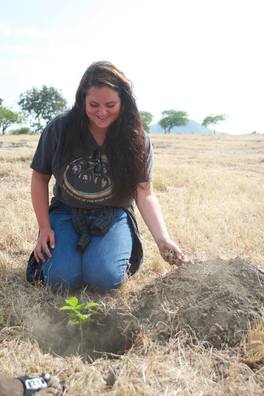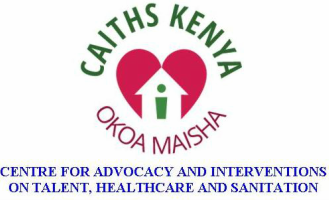Empowerment and Environment Conservation Project

Rusinga Island is ravaged by deforestation as an exploding population tries to carve out a livelihood on the island's already scarce resources. In the last few years, the local community has for the first time experienced the total loss of harvest during the droughts caused by increasingly unreliable weather patterns. Fish catch has gone down for fishermen. This fishermen and fishmongers (widows) has turned to cutting the few trees in the Island for charcoal needed for cooking, warmth, and boiling water. Our main objective in this initiative is to create a healthy and sustainable empowerment opportunities for youths and women who are heading and caring for these students back in their families. Rusinga Island is one of the poorest areas in Kenya with over 50% of the population in extreme poverty. Besides that, it is estimated that 34% of the population on the island has HIV/AIDS, one of the highest affected areas in Kenya and many parents have lost their lives leaving behind children and youths. Higher percentage of death in Rusinga is coursed by HIV and AIDs, STIs, malaria and water borne related diseases. “If a person on Rusinga is not infected, then they are certainly affected. The existence of deadly fish-for-sex trade among young women (widows) with Jaboya as the cause of this extremely high prevalence rate among young girls. “Jaboya means a customer who's also a lover, though not necessarily by choice.”- I give you fish, you give me sex (Fish for sex.) In these ways, HIV spreads rampantly from one beach to the next, from one fisherman to the next, and from one young woman to the next. This is why the CAITHS want to save the lives of this vulnerable women (who are care takers of our students) by introducing them to a healthy and sustainable income-generating activities. Job creation and empowerment proposals include: tailoring and design training project, beauty and boutique project. These activities will also be a source of income and sustainability for the Centre
At the same time, fishermen in the last 10 years have experienced low or no fish catch. They have are left with no option, but to turn to the few trees and vegetation on the island as firewood and cash. This is why its an evident that Rusinga is desert. To solve this, late last year, the CAITHS initiated a tree planting project with the name-Greening Rusinga Island. Thanks to the RIFT and Faculty students (through Dr. Kieran McNulty) who joined the team for tree planting during Community Service Day.
Action Plan for 2017 and beyond
At the same time, fishermen in the last 10 years have experienced low or no fish catch. They have are left with no option, but to turn to the few trees and vegetation on the island as firewood and cash. This is why its an evident that Rusinga is desert. To solve this, late last year, the CAITHS initiated a tree planting project with the name-Greening Rusinga Island. Thanks to the RIFT and Faculty students (through Dr. Kieran McNulty) who joined the team for tree planting during Community Service Day.
Action Plan for 2017 and beyond
- Lobbying stakeholders, partners and friends to realize funds and recourses for the activities.
- The Centre had proposed upgrade this initiative by starting a tree, vegetable and fruits seedling farm where indigenous tree and all kinds of fruit trees will be available for the community at a fordable fee.
- There will also be an organized Ecosystem management training programs to equip the community members with enough skills of managing and maintaining the ecosystem.
- Women will be given start-up capital for their small scale businesses.

